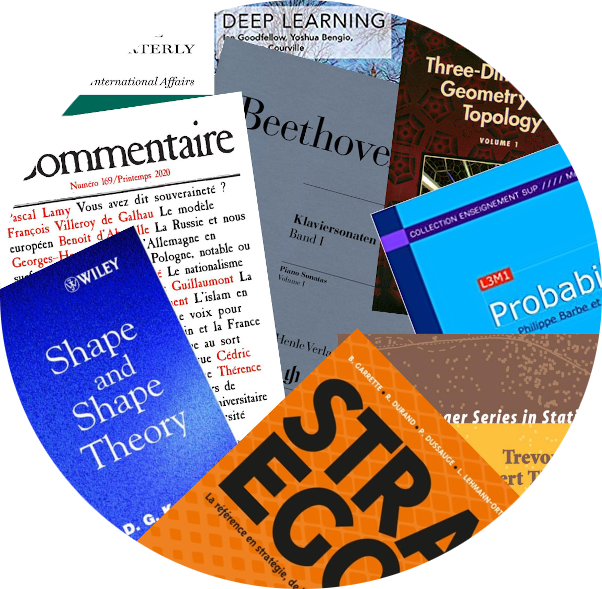 Philippe Barbe
Philippe Barbe

|
Preserving the fireby Philippe Barbe
09 Jun 2021
|
In 1999, the Bureau of Labor Statistics predicted that 5% of children in grade school at that time would end up in jobs that hadn’t yet been created. And, the Institute for the Future predicted in 2017 that around 85% of the jobs that today’s learners will be doing in 2030 haven’t been invented yet. Other predictions see 30% of the workforce changing careers every 12 months.
There is no doubt that technological and societal evolution are changing our jobs as well as the workplace, and will keep doing so. In the face of the important changes that are occurring, what do we, and our children, need to learn to remain employed?
Some argue that learning to code is the answer because there is a demand. Given the demand for that specialized skill, such advice certainly addresses the question of the immediate learning that helps to find a job in today’s employment market. But, it doesn’t address the longer term issue of what to do when the demands of the market change.
Others argue that we all should “learn how to learn”… which implies that we should first learn how to learn how to learn! Philosophically, learning how to learn is a good idea, but how do we practically do it?
The difference between an evolution and a revolution is the speed at which the change occurs and the magnitude of the change. At the scale of human history, the changes we are experiencing are a revolution.
But at the scale of a human life, say the 40-year span of a career, it is more of an evolution. The day-to-day of every job changes over a lifetime. New techniques are invented, new processes are devised. Some jobs and even entire professions disappear leaving unemployed people struggling, other jobs and profession are created. Some jobs are relocated, making it less a question of skills than mobility.
For most people life works its way, with ups and downs, and the flow pushes us nicely toward new skills, incrementally. The need for massive, quick change is much less prevalent that the soothsayers pretend.
COVID-19 provides a good example of the reality that our limited imaginations slow the rate and scope of change and thus our need to evolve and massively learn.
Yes, the pandemic did far more to make remote work mainstream than the 10 previous years of talking and dreaming about remoteness, but it’s striking though how little imagination we exhibited on how we went online with video conferencing. Despite having a fundamentally new medium, with a choice of video versus simple voice call versus written communication, we collectively elected to transfer a process designed for in-person to online. What could have been an opportunity to dramatically reshape the way corporations are managed, has been a simple transfer of a processes that is akin to installing glass partitions in a meeting room.
The point is not to analyze in depth the changes that the pandemic brought to the work place, but to draw attention to how incremental the change has been in the skills we need to function in it. The medium we communicate has changed dramatically, but that’s not a skill. How we communicate has not changed.
The main reason these changes are gradual, whether we consider the pandemic or more general evolutions, is that the society is too big to fail. Governments, corporations and organizations, beyond being driven by humans who have their own limitations, understand that introducing new processes that will leave 80% of people behind is not realistic.
Ultimately, we all end up in the same boat, managing our own gradual changes. Some more happily than others, but overall managing our own transitions.
If our goal is to follow the changes, the resulting insight into the question of what we should learn in order to know how to learn is… we should pretty much just be in the flow and learn what everyone else is learning. What matters is not what we learn, but that we learn pretty much the same as the others. Not exactly the same of course, for we all have different inclinations, but at least the foundations should be about the same.
What if the “what should one learn?” question is more what should one learn in order to be ahead of the others, be able to learn new things faster, and adapt better?
While pedagogues have debated the issue probably since the beginning of pedagogy, many things remain unchanged in the Western world: Greek plays are still read and performed; tonal music still dominates; figurative art is still alive and appreciated; and despite all the talk of human augmentation, most of us have two arms, two legs, one head, and we cry when we lose a loved one. Similar constants are observed in all parts of the world.
Revolutionaries have attempted to change these human characteristics and traditions, some by political means, others through technology. The most radical ones of the 20th century have mostly failed.
If this tells us anything it is that tradition is our best bet toward modernity. The composer Gustav Mahler said it remarkably well: “tradition is not the worship of ashes, but the preservation of fire.”
Humans are stunningly good at finding, memorizing and using patterns. As children, we hear people speaking around us, and we pick up language. We learn all sorts of motor skills because of our biology and the repetition that we see around us. We develop this amazing ability to pick up things by imitation, to distinguish what is not in the patterns that we mastered and make it a new pattern or reject it as noise.
By taking a long perspective, tradition is an invitation to seek patterns in humanity.
By setting a large context for reflection, tradition allows us to wonder about who we are, and investigate our condition in our internal dialogue with ourselves. Being forced to embrace the vast expanse of the human condition, it forces us to create our own concepts that allow us to reduce history to a few things that seem important to us. Put differently, tradition, as preservation of the fire and not as worship of the ashes, is an invitation to conceptualization.
This ability to conceptualize is what makes us adaptable… to learn in response to evolutionary or revolutionary changes in the world around us.
Consider a word processor, which is just more efficient typewriter combined with a storage device, which was a more efficient smaller printing press and a library. Or the internet which is akin to a library catalogue. Not only do these modern tools have ancient functions, but what they provide us and how we consume what they serve us is no different than it was 100 years ago.
The significance of reading is obvious: we need to read all sorts of texts, more varied than ever, from how to operate machines to complex technical or business documents. And as these documents need to be written, we need to write in order to communicate. Counting is not as important as it used to be at a superficial level, in the sense that machines count for us; but counting is more important than ever for the comprehension of numbers, logic and thinking that it develops.
Hence our ability to adapt… learn… rests on the traditions of reading, writing and counting. And now, in the world of video conferencing and overall communication to a larger audience, we add the skill of acting, going back to the Greeks.
We have managed to preserve the fire for so long that by now we have quite a good idea on how to continue to preserve it.
So what is it that we should learn to remain relevant?
What brought us to where we are, what has remained over long periods of times, augmented and not replaced by the fashion of the generations… feeding some fresh wood to our traditions enables us to keep the fire burning.